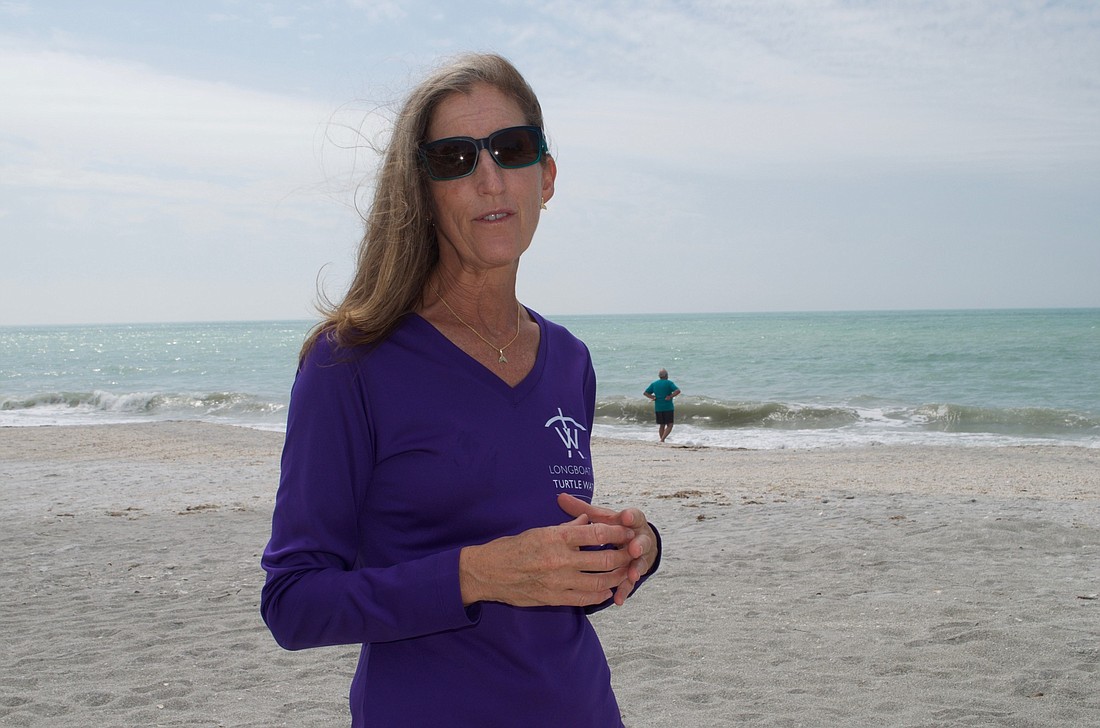- April 25, 2024
-
-
Loading

Loading

Perhaps lacking the gravity of hurricane season for some, sea turtle nesting season nonetheless is about six weeks away, and with it comes a level of preparedness for beachside dwellers and possible penalties for those who don't follow through.
To gear up for the season that runs from May through October, Florida's Sea Turtle Conservancy plans a pair of informational workshops in April to help residents, condo operators and resort owners learn what's expected of them and how they can avoid trouble.
Longboat Key will enter the third season of revamped rules this summer. Last year, the town approved authority for on-the-spot citations for a handful of code violations, including beach lighting regulations during turtle season.
In the summer of 2016, the new rules eliminated a requirement that limited code enforcement to searching for lighting violations that cast a shadow on a moonless, cloudless night. It also increased the types of lighting violations the town can enforce from nine to 13 varieties, including interior lighting. The ordinance additionally makes it a violation to leave furniture and recreational items close to the shoreline from 11 p.m. to 5 a.m. because of the risk of entanglement with turtles emerging from or returning to the surf.
“The workshops are great opportunities for the public to learn about how artificial light impacts turtles, current ordinances and regulations on beachfront lighting, and how to recognize poor beachfront lighting,” Planning, Zoning and Building Director Allen Parsons said of the April 24-25 events.
The costs can be high.
The town was in court Feb. 28 in the 12th Circuit because Oprock LLC, operators of the Zota Beach Resort, appealed a $3,000 fine it received on Aug. 2, 2018 for violating the town’s turtle ordinance. The town’s Code Enforcement Board ruled light improperly shining on the beach contributed to the disorientation of 15 hatchlings that were found dead in the hotel’s hot tub. A ruling on that appeal is pending.
Earlier in February, though, the Inn on the Beach Association lost an court appeal of a $2,000 fine connected to a similar case of beach lighting.
Oprock attorney Maureen Deskins argued the fine is excessive and the town’s turtle ordinance is unconstitutionally vague, adding it is impossible to operate the hotel in darkness. She said $70,000 was spent to tint the hotel’s windows to bring it into compliance with the ordinance.
“The coating is expensive,” Deskins said. “Zota Beach Resort is doing everything to comply.”
Attorney Arthur Hardy, who was representing the town, said neighboring communities have similar ordinances in place to protect turtles. Hardy also said a $3,000 fine to a gulf-front resort was not excessive, considering the turtle deaths were an irreversible event.
Parsons said civil violations can start at $100 and go up from there for subsequent offenses. Daily fines are also possible, he said. The town opened 56 cases of noncompliance in 2018.
“I think the town generally sees very good compliance, which gets better every year,” Parsons said, adding that awareness of how light can affect turtles at night can aid in buy-in for those unaware of the rules.
"The town seems like it is enforcing its turtle rules more," said Cyndi Seamon, vice president of Longboat Turtle Watch. "And that's a good thing."
Gretchen Stricker of Villa di Lancia condominiums, in the 2100 block of Gulf of Mexico Drive, said they put up notices given to them by the Longboat Key Turtle Watch before season begins. Each night, they check to see if balcony lights are off and beach furniture is stacked against the building.
“We also do a beach check,” she said, adding they keep a look out for evidence of turtle presence. “We make sure the beach tracks are going the right way. If they aren’t, we contact Mote.”
In mid-April before turtle season starts, the maintenance staff at Seaplace Beachfront Condominiums begins changing each outside light said Wendy Cichowski, the community's director of operations.
“It gets very dark here,” she said.
Seaplace also switches to red lights at the pool and puts up signs telling people it’s turtle season, she said.
“Our preparations take two to three weeks to complete,” she said. “Our guards also go around at night to see if people have their balcony lights on. If they do, then they’re asked to turn them off.”